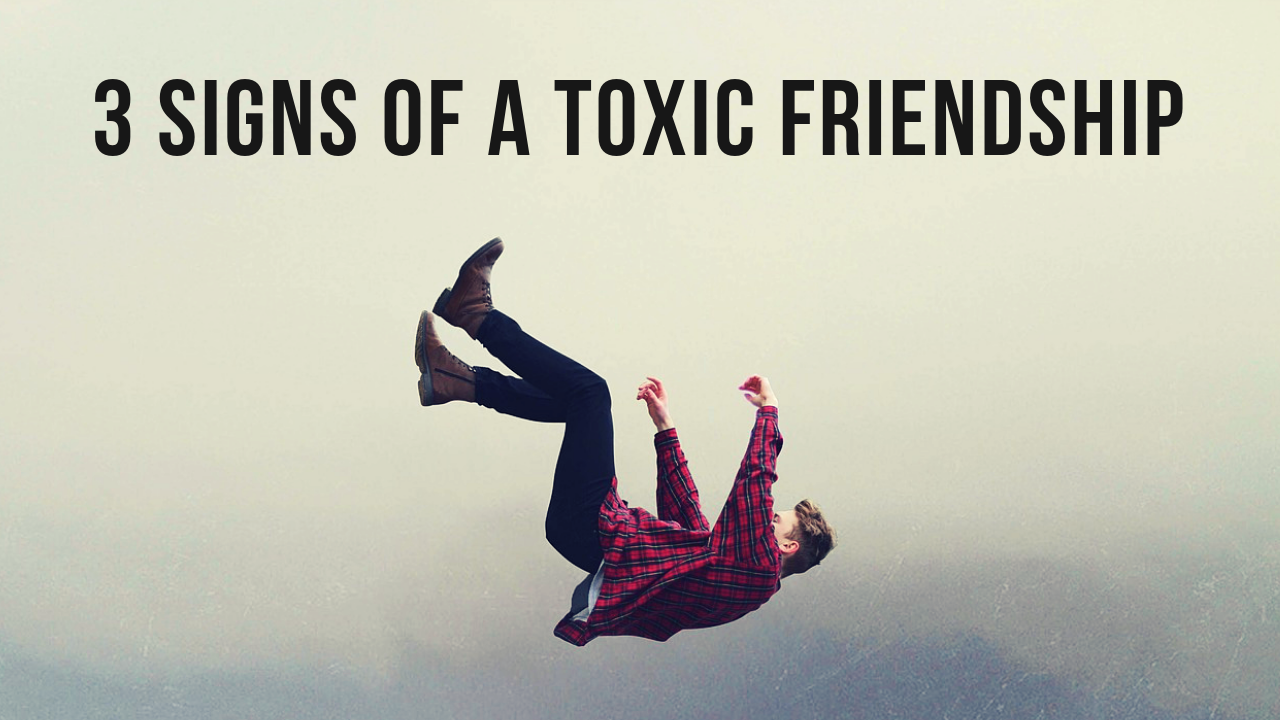
Not all friendships were created equal. So what makes a good friend and what makes a toxic friend? How can you tell if you should continue a friendship or change your boundaries with someone? What are the signs of an unhealthy friendship?
Here are 3 differences between good friends and toxic friends. These three differences can help us identify people we can trust and they can also help us develop into the friends we want to be to others.
- Good Friends Encourage You. Bad Friends Tear You Down and Doubt You
One of the main differences between good friends and bad friends is the words they speak to you. Are they encouraging to you or discouraging to you? 1 Thessalonians 5:11 states, “Therefore encourage one another and build one another up, just as you are doing.”
One of the benefits of friendship is supposed to be the freedom to honestly express oneself. If you share your dreams or desires with a friend, how do they respond? Do they encourage you and offer a listening ear? Or do they tell you why your dreams are unrealistic and tell you how bad your ideas are?
You certainly don’t want friends who will tell you whatever you want to hear and who will never share their concerns. But overall you should feel encouraged by your friends rather than discouraged. If you walk away feeling emotionally beat-up and like you are always the butt of every joke, this is a toxic friendship.
A bad friend will make you feel like you always need to on guard around them. A good friend, however, will make you feel like you are in a safe place and you can let your guard down.
- Good Friends Share Their Concerns in Love. Bad Friends Don’t Ever Share Concerns and Only Say What You Want to Hear
Just as a bad friend will always cut you down and shame you, another type of toxic friend is that person who will only tell you what you want to hear and will never share their concerns with you.
Those who struggle with addiction, for example, often avoid good friends and surround themselves with bad friends because they know their good friends will share their concerns but their bad friends will let them keep hurting themselves without saying a word. In the addiction and recovery world these types of toxic friends and family members are called “enablers.”
Proverbs 27:9 states, “Oil and perfume make the heart glad, and the sweetness of a friend comes from his earnest counsel.” Proverbs 27:6 also explains, “Faithful are the wounds of a friend; profuse are the kisses of an enemy.”
Toxic people aren’t always the ones who tear you down. Toxic people can also be those who pat you on the back as your tear yourself down. People who never call you out in love are those who love themselves more than you. People who are unwilling to say hard things that need to be said put their own comforts before those in need.
It’s not easy to confront someone in their self-destructive behavior. But when someone really loves their friend they will share their honest concerns in a humble spirit.
- A Good Friend Gives and Receives. A Toxic Friend Only Takes and Always Puts Themselves First
A toxic friendship is when one person does all the taking and the other person does all the giving. If someone only calls you when they need a ride, they only call you in crisis, or they only talk about themselves whenever you hangout – this is a toxic friend. If anyone knew something about toxic friends, it was Job. In Job 6:14-17, it states:
“Anyone who withholds kindness from a friend forsakes the fear of the Almighty. But my brothers are as undependable as intermittent streams, as the streams that overflow when darkened by thawing ice and swollen with melting snow, but that stop flowing in the dry season, and in the heat vanish from their channels.”
Jobs friends were not dependable people. They were there when Job was stable. But they were not there to help when he needed support in his life.
How Should You Deal with Toxic People?
Now, when someone toxic like this comes into your life, I’m not saying you should always remove them from your life. Sometimes you should. Sometimes you shouldn’t. However, you should not view this relationship as a friendship. I would view this as a ministry. A friendship is about giving and taking. A ministry is about giving.
As Christians we are not called to cut out of our lives every unhealthy person. But we are called to guard our hearts (Proverbs 4:23). You can love and serve toxic people when you feel led by God to take them on as a ministry. However, you should not view toxic people as friends nor should you try to minister to every toxic person you ever meet. If your life is overwhelmed with more toxic people compared to healthy people, even if you are trying to help these people, eventually you will get deeply hurt and burnt-out.
You have to have friends and you have to have people in need who you just minister to while expecting nothing in return. The danger is when you start letting your guard down and filling your life with too many toxic people.